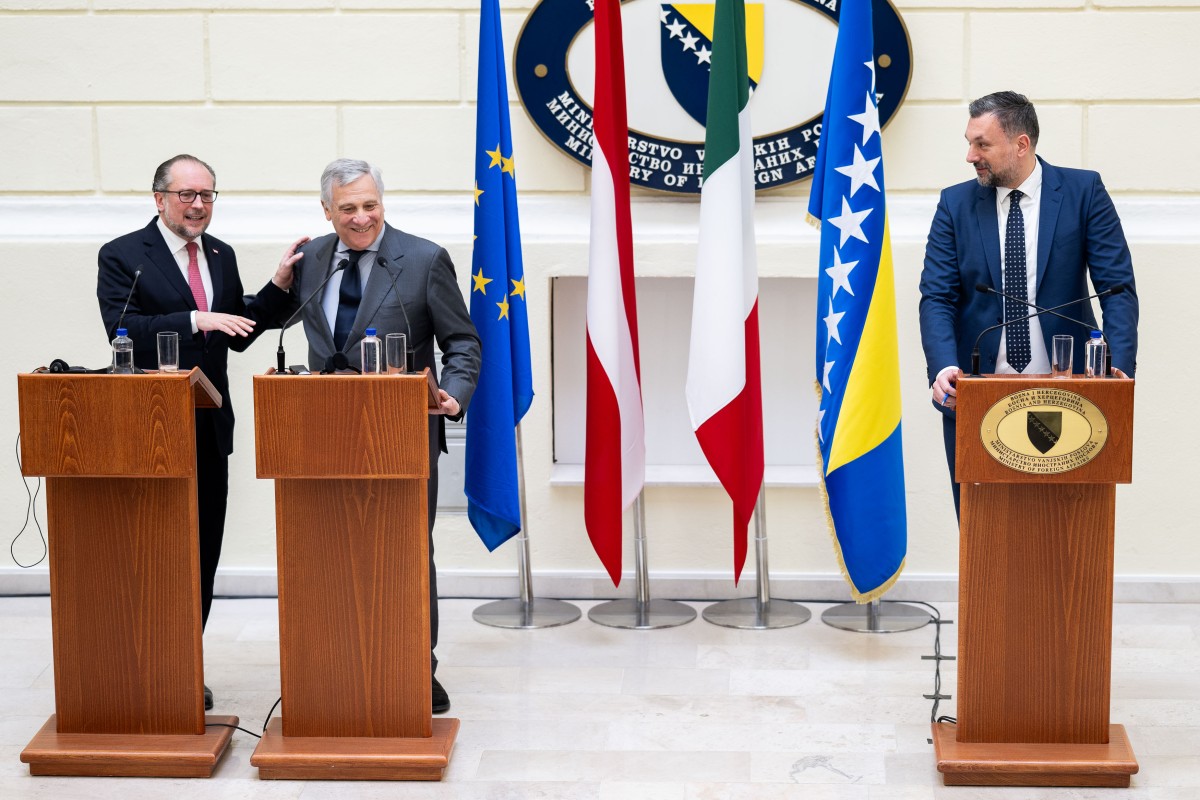Sponsored Content
Austria and Italy Chief Diplomats Visit Bosnia and Herzegovina
The Foreign Ministers of Austria, Alexander Schallenberg, and Italy, Antonio Tajani, undertook a joint trip to Sarajevo, Bosnia and Herzegovina, to support the country in its efforts to join the EU. This trip underlines the continued commitment of the European Union, in particular Austria and Italy, to the integration of the Western Balkans into the EU.
 Austrian Foreign Minister Alexander Schallenberg and his Italian counterpart Antonio Tajani met the Foreign Minister of Bosnia and Herzegovina, Elmedin Konakovic, in Sarajevo. / Picture: © BMEIA Bundesministerium für Europa, Integration und Äußeres / Gruber / Flickr Attribution 2.0 Generic (CC BY 2.0)
Austrian Foreign Minister Alexander Schallenberg and his Italian counterpart Antonio Tajani met the Foreign Minister of Bosnia and Herzegovina, Elmedin Konakovic, in Sarajevo. / Picture: © BMEIA Bundesministerium für Europa, Integration und Äußeres / Gruber / Flickr Attribution 2.0 Generic (CC BY 2.0)
As part of their ongoing efforts to integrate the Western Balkans into the European Union, the Foreign Ministers of Austria and Italy, Alexander Schallenberg and Antonio Tajani, sought to address the most current problems in their meetings. Their main objective was to support the country in its efforts to drive forward the reform process with a view to future EU accession. This…
or Log In
Fast News Search





